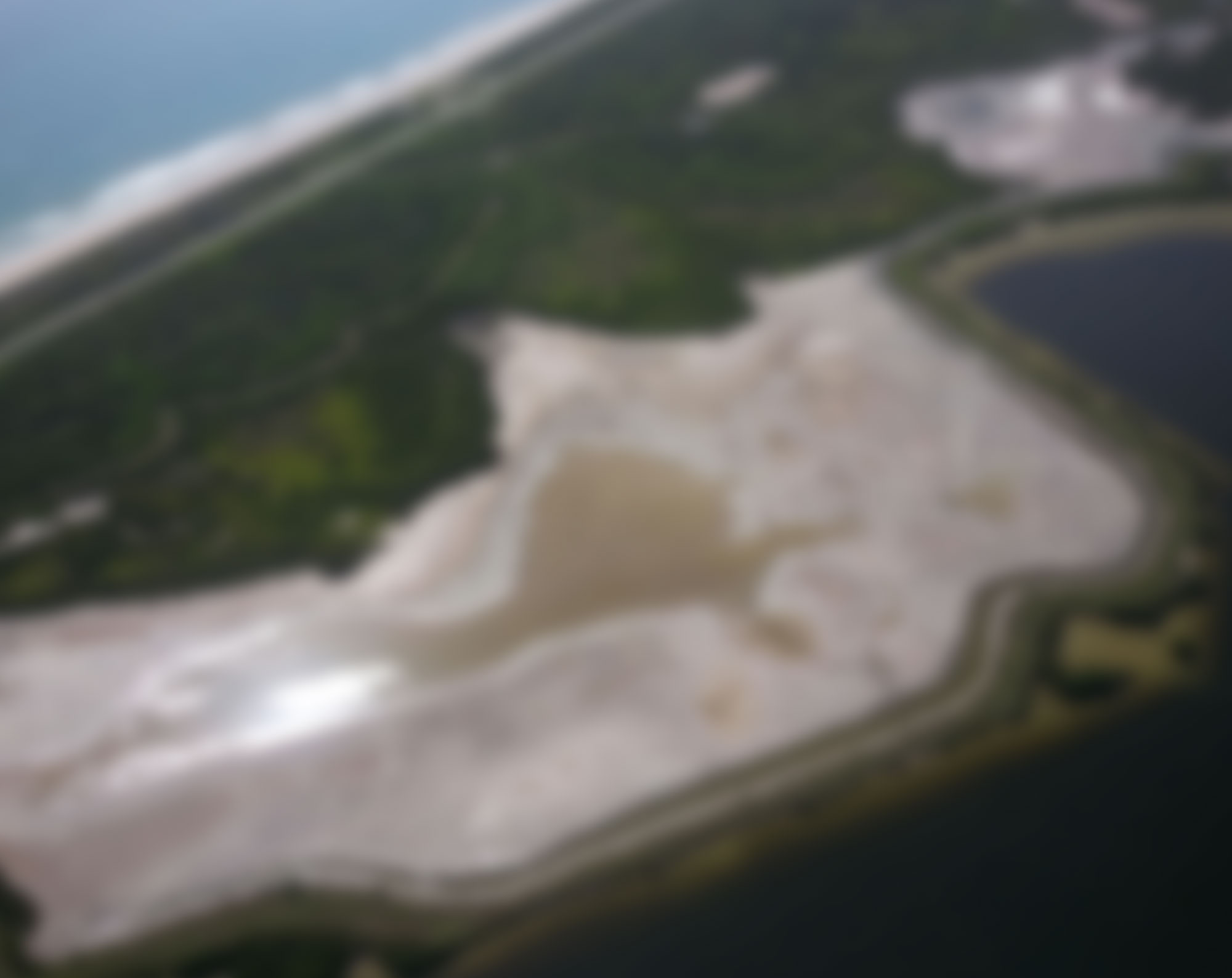
KSC Landfill
Kennedy Space Center (KSC) operates an unlined Class III solid waste landfill under a permit issued by the Florida Department of Environmental Protection (FDEP). Operation of solid waste landfill facilities in Florida are regulated by Florida Administrative Code (FAC) Chapter 62-701. The landfill is available for use by Kennedy organizations and contractors provided they comply with the requirements found in Chapter 14 of KNPR 8500.1 (KSC Environmental Requirements).
The Base Operations & Support Services (BOSS) contract operates the Kennedy landfill according to FAC Chapter 62-701, permit conditions, and a landfill operating plan approved by the FDEP. The NASA Environmental Assurance Branch (EAB) oversees landfill compliance and submits all required reports to FDEP.
Waste accepted at Kennedy’s landfill
- Yard Trash—Vegetative matter resulting from landscaping maintenance or land clearing operations, including materials such as tree and shrub trimmings, grass clippings, palm fronds, trees, and tree stumps
- Construction and Demolition Debris — Materials considered to be not water soluble and non-hazardous in nature, including but not limited to steel, brick, glass, concrete, asphalt, pipe, gypsum wallboard, dry electrical equipment and lumber. This includes rocks, soils, tree remains, trees and other vegetative matter, which normally results from land clearing or development.
- Shredded Waste Tires—”Shredded waste tire” means a tire that is no longer suitable for its originally intended purpose because of wear, damage, or defect and that has been reduced in size by cutting, grinding, shredding, milling or rasping
- Non-pressure Treated Wood
- Carpet and furniture
- Non-Contaminated Soil (will be used as landfill cover material)
- Non-Friable/Non-Regulated Asbestos Containing Materials (see additional information below)
- Certain Polychlorinated Biphenyl (PCB) Bulk Product Wastes (see additional information below)
Waste not accepted at Kennedy’s landfill
- Any waste not permitted by FDEP regulations to be disposed of in a Class III landfill as defined in FAC Chapter 62-701
- Hazardous wastes as described by Resource Conservation and Recovery Act regulations
- Liquid and oily wastes (containerized or non-containerized)
- Paint chips and spent blast media (unless determined to be non-hazardous waste and a non-PCB waste)
- Petruscible Waste
- Pressure Treated Wood
- Oil-Containing or Oil-Contacted Electrical/Mechanical Equipment (drained or not drained)
- Friable/Regulated Asbestos Containing Materials
- Biomedical Waste
- Lead-Acid Batteries
- Tires (other than “shredded waste tires”)
- White Goods or Appliances
- Drums (empty or full)
- Contaminated soil
Non-Friable/Non-Regulated Asbestos Containing Materials
The center’s landfill only accepts non-friable/non-regulated asbestos containing materials (NRACM) for disposal. Friable/Regulated Asbestos Containing Materials (RACM) must be disposed at an appropriate off-Center disposal facility. Before disposing of NRACM in Kennedy’s landfill, organizations and contractors must obtain approval by submitting a completed Landfill Non-Friable Asbestos Form (KSC Form 28-1084) to the NASA EAB. Once written approval from the NASA EAB has been obtained, the following disposal procedures shall be followed:
- The waste generator/hauler must notify the landfill operator at least 24 hours before the delivery of NRACM waste. The waste generator/hauler must provide the quantity of the waste and the scheduled arrival date at the landfill.
- NRACM will only be accepted at the landfill during regular landfill hours before 2 pm.
- The physical dimensions of the waste shall be within the handling capabilities of the landfill disposal equipment. The landfill staff will discuss these specifications with the waste generator/hauler on a case-by-case basis.
Polychlorinated Biphenyl (PCB) Bulk Product Waste
There is documented existence of PCBs in various building materials (such as paints, coatings, caulk, mastic, window glazing, adhesives, dry cable insulation, etc.) across Kennedy and Cape Canaveral Space Force Station. Kennedy’s landfill accepts certain types of PCB Bulk Product Waste for disposal. PCB Bulk Product Waste is defined in the Code of Federal Regulations (Title 40 Part 761) as waste derived from manufactured products containing PCBs in a non-liquid state at any concentration where the concentration of PCBs at the time of designation for disposal is ≥50 parts per million.
PCB Bulk Product Waste Accepted at the Landfill:
- Construction and demolition debris that contains or may contain PCB bulk product waste provided there are no materials in the debris that are specifically prohibited for disposal in the landfill
PCB Bulk Product Waste Not Accepted at the Landfill:
- Oil-Containing or Oil-Contacted Electrical/Mechanical Equipment (drained or not drained)